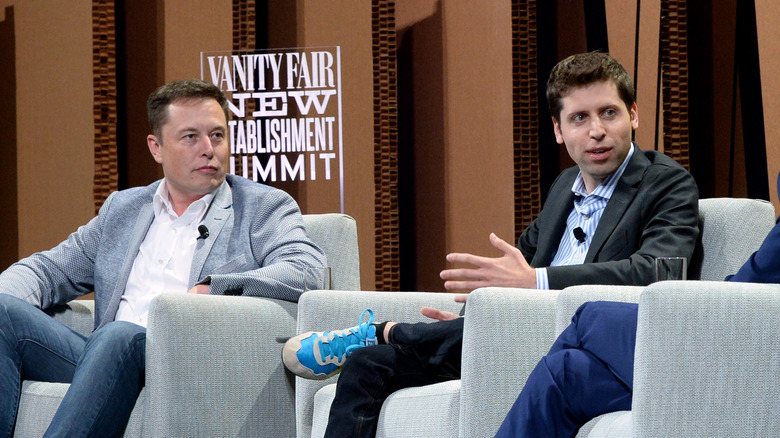OpenAI's Sam Altman Sounds Off On Lawsuit From Elon Musk
The company behind ChatGPT is currently locked in what some say is an existential legal challenge brought by none other than Elon Musk, one of its founders, who sued OpenAI and its CEO Sam Altman in February. A lot has been said about OpenAI abandoning its non-profit roots, and Altman recently explained that it became necessary for the company to "productize" in order to raise the required capital and keep moving ahead. During that same podcast appearance, Altman candidly mentioned that he was unaware of the true intention behind Musk's lawsuit. "I don't know what it's really about," Altman said.
To recall, Musk claimed in his lawsuit that OpenAI breached a contract by chasing a for-profit model after initially promising to develop AI that benefits humanity while maintaining a non-profit status. The company published email conversations involving Musk in what some may consider the public airing of dirty laundry; they showed he reportedly sought complete control over and merger of OpenAI with Tesla. When those demands weren't met, Musk is said to have left the company.
It seems looking back, Altman has some thoughts about approaching things differently, especially when it comes to the conundrum of a startup where it can chase profits from the get-go or initially target a non-profit business model. "If we knew what was going to happen, we would have done that too," Altman said, implying that he would've gone with an approach where capital wasn't put on the back burner. But at the center of the tussle with Musk is open-sourcing the AI tech stack, which Altman addressed in a diplomatic fashion.
An odd caveat to a serious lawsuit
"I think we should open source some stuff, and not other stuff," the OpenAI chief said. To recall, soon after news of the lawsuit became public, Musk posted on X that he would drop the case if OpenAI changed its name to "Closed AI." Altman remarked that if there was a chance to go back into the past, he would pick a different name for the company. Ultimately, Altman argues that open-sourcing its tech stack isn't the real issue here. "I don't think open-source versus not is what this is really about for him," he said.
Altman further doubled down on Musk's lawsuit and his proposal, which seems to hinge on a name change for the company at the end of the day. "I think that speaks to the seriousness with which Elon means the lawsuit," says the company's CEO, who was recently fired but quickly reinstated, though Altman's dramatic rise and fall is already old news. "This whole thing is unbecoming of a builder," he added. Notably, Altman discussed the possibility of an amicable future with Musk, adding that he respects him as a great builder.
Musk, on the other hand, has requested a judicial order that would force OpenAI to put its research and technology in the public domain, while also prohibiting the company from using its tech for the financial benefit of prominent backer Microsoft or any other party. The Altman-led company seeks to "dismiss all of Elon's claims" as the case enters court halls.
